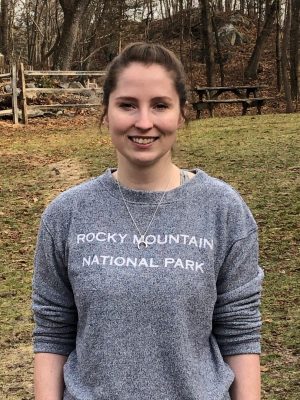Pleasantville, Westchester to Expand Opportunities to Compost
By Michael Gold

Pleasantville is presenting a new composting education program for the public on Thursday, Jan. 23, from 7 to 8:30 p.m. at the Mount Pleasant Public Library on Bedford Road.
The event, “Pleasantville Recycles: Find Out How, Why, When and Where,” will discuss the ease of composting and comes as Pleasantville’s composting program has grown, with about 80 people participating now.
As Pleasantville expands its composting efforts, a private company will be opening a site this year to accept 5,000 cubic yards of food scraps annually, including Pleasantville’s, in northern Westchester.
Additionally, Westchester County is conducting a food waste study. Lou Vetrone, deputy commissioner, Westchester County Department of Environmental Facilities (DEF), said the study is expected to be released imminently.
“Once the study is final and we have assessed the findings, the county will determine the best way to assist our local municipalities, businesses and residents in addressing food waste,” Vetrone stated in an e-mail.
The county is also exploring ways to reduce the amount of food wasted within Westchester.
PleasantvilleRecycles, the village’s recycling committee, reported solid progress with food scrap recycling.
“The first week we had 10 participants. Now we have 80 participants,” said Dan Turner, a PleasantvilleRecycles member. “We’re filling six or seven bins a week.”
“Each week we keep increasing the number of people participating who are dropping off food scraps and composting material,” Turner said. “We’re very encouraged. We’ve sold over 100 (composting) kits. That exceeds our goal.”
“PleasantvilleRecycles is moving more toward re-use,” said Village Trustee Nicole Asquith and Village Board liaison to the committee.
She wants the composting program to keep growing.
“I want to expand composting to drop off (food scraps) several days a week,” Asquith said.
Scarsdale has composting drop-off six days a week and a household pick-up day, on the same day as trash pick-up.
Pleasantville is expanding composting because it has several advantages, Asquith said. Food has a lot of water, and since Westchester County incinerates its waste, it’s harder to burn wet materials, she said.
Also, composting reduces the waste stream, which saves the village and county money on trash disposal fees. Additionally, composting returns carbon to the soil.
“Food scraps are turned into 100 percent nutrient-rich soil,” Turner said.
The Town of Ossining is also exploring composting. Funding from the state Department of Environmental Conservation’s (DEC) 2018 Municipal Food Scraps Reduction, Food Donation and Food Scraps Recycling Programs, Ossining will be establishing a pilot program for all town residents, including those in the villages of Ossining and Briarcliff Manor, according to the town’s website. The municipality will be partnering with Teatown on education and outreach.
Currently, the food scraps from Westchester County are trucked to Kingston, Ulster County, or New Milford, Conn.
That can change sometime in the spring. A new composting facility is under construction now in Cortlandt Manor, said Braeden Cohen, co-founder of Sustainable Materials Management, Inc. (SMM), the company building the site.
Cohen said the company is working hard to open as soon as the spring.
The facility will be at 1 Bayview Rd., adjacent to the Cortlandt Department of Public Works and across Peekskill Bay from the Wheelabrator waste-to-energy plant in Peekskill, Cohen said.
“We’re generating one quarter million tons of organic waste in Westchester,” Cohen said. “We’ll (SMM) be the first ones in Westchester to do food scrap recycling.”
Food scraps will be dropped off by SMM’s customers, then turned into compost.
According to the U.S. Environmental Protection Agency (EPA), wasted food is a growing problem – and an untapped opportunity. In 2017, almost 41 million tons of food waste were generated, with only 6.3 percent diverted from landfills and incinerators for composting. The EPA estimates that more food reaches landfills and incinerators than any other single material in everyday trash, constituting 22 percent of discarded municipal waste.
Nadya Hall, community environmentalist at Teatown Lake Reservation, which is working with Ossining on its food scrap recycling program, said “composting is about making a choice to be mindful of our impacts on the Earth. We have a responsibility to current and future generations to live a more sustainable lifestyle.”
Pleasantville resident Michael Gold has published op-ed articles about the environment in the New York Daily News and the Albany Times-Union. He has written four books, including “Consumer Culture is Consuming Us” and “God in Crisis – The Destruction of the Environment and its Consequences for Our Relationship with God.”

Examiner Media – Keeping you informed with professionally-reported local news, features, and sports coverage.
